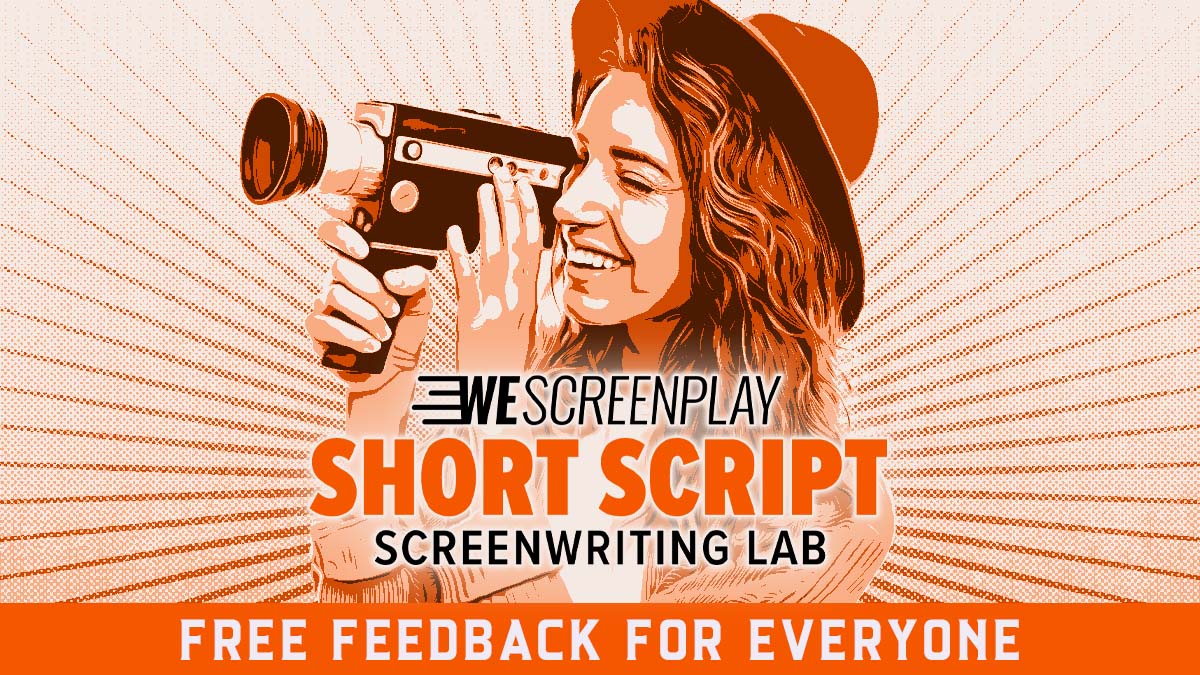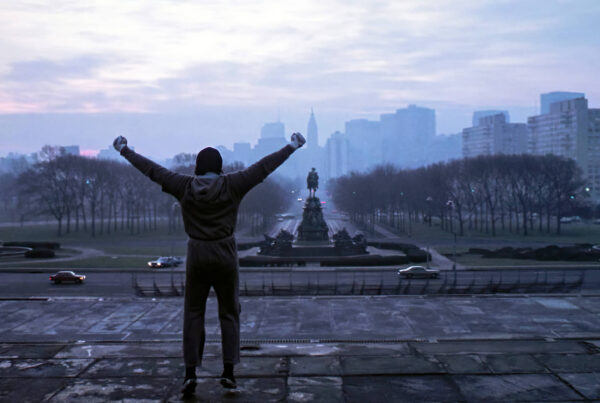
On Tuesday, April 13th WeScreenplay hosted a “Cocktails and Conversations” talk with Charlie Swinbourne.
Charlie is a screenwriter and journalist who is deaf and grew up in a deaf family. The event included a live ASL interpreter which for me, as a listener and viewer, added an important dynamic to the conversation.
Charlie has recently written for BBC programs such as CASUALTY, EASTENDERS, and on new series for CBBC and CBeebies. He also currently sits on the jury for the Fall 2021 Diverse Voices Competition.
So much fantastic information was discussed — you can watch the entire chat below (closed captioning available), and here are some of the key takeaways:
Writing in other mediums can be beneficial to your work as a screenwriter.
Charlie started off as a journalist and mentioned that “the line between documentary and drama is becoming more blurred” and “being a journalist is a great attribute.”
He stated that there is “an eye for detail” that journalists have and a need to be very precise because they are “having to back up everything that [they] do.” And when you are “scriptwriting and you get a lot of notes from people, then you have to respond to each one of those, and you are looking at the detail drilled down in your scripts. So [he] thinks the skills of being a journalist, can have a real link to scriptwriting.”
No matter what your background or training, he states that the key is “to start actually writing some scripts and write in a drama[tic] way, and try and make it interesting and have an impact… then start to show people and get people to read your script and give you feedback.”
Most importantly, Charlie stressed that it’s all a process and it’s important to “learn from your your mistakes,” and he is “always trying to learn and improve.”
Growing your skillset as a writer can come in a variety of ways.
Charlie said that while he didn’t go to film school, he did go to an “evening scriptwriting course, and that was really helpful. But really [he] watched a lot of television, a lot of films” and what he found to be key was that he “watched everything with subtitles as well, so that…made him read at the same time as watching.”
He also emphasized that inspiration for the craft can come from many places. In fact, it was upon watching THE GODFATHER that really made him see film as more than entertainment, but as truly having something to say.
Leaning into opportunities provided by “diversity” programs can help push open doors.
One viewer name Ruth wrote in with a question saying that “as a writer with a disability, she knows that there are opportunities open to her that are not open to the general public like the BBC Writer’s Access program, and she is conflicted about submitting for those opportunities because she wants to be selected for the strength of her writing and not because she ticks a box.”
In response to this and whether these types of diversity programs lead to equal opportunities, Charlies stated that “it’s a fantastic question” and that he thinks “that what’s happening is that the television industry is obviously realizing that it doesn’t – and the film industry as well – is realizing that it doesn’t have enough representation of people from different groups, and there’s a lot of reasons for that… but as a writer who is deaf….we actually face quite a lot of barriers in terms of getting our work through into the mainstream, because up until now it’s been seen as kind of niche.”
Charlie also stressed that “we also face barriers in normal life as well… so these [programs] can give an opportunity to show what we can do. And what your aim is, is to show that you are as good as anybody, but sometimes you need an opening of the door so you can get in.”
He then says that the hope after getting the opportunity from a diversity program is that “writers will get through them and then they will go on to have a really long career and learn from that experience and take everything forward,” that way they can also bring their personal stories and point of view to the forefront and impact a mainstream audience.
Collaboration is key when writing marginalized characters with experiences different than your own.
A viewer who is not deaf themselves asked Charlie about writing deaf characters. They mentioned that they want to make sure that they aren’t speaking for the deaf community and are writing appropriate roles for deaf actors.
Charlie said that sometimes it seems like people are looking for a shortcut to get a lot of information. He usually tells people “to go and do their own research. Get to know deaf people.” He also said that “if you have had that experience then you can obviously write from your experience, but [he thinks] you should really get to involve a deaf person and maybe in an ideal world you would collaborate with a deaf writer, and work together, and then you can really make sure it’s coming from a deaf experience as well and you can create something really beautiful together. [He’s] not saying that you can’t do it on your own, but [he] thinks that if you can involve deaf people in your research and work with a deaf writer that will really, really, help.”
So, when writing about people from marginalized communities, it’s important to involve those people when you can. You want as much involvement as possible.
Your passion will power your story.
Charlie encouraged the viewers to focus on the stories that they really want to tell. He said that often writers “will try and write something that they think other people will like.”
While pursuing a career as a screenwriter, he stressed that it’s important not to “forget that possibly the thing that you like, that’s what will make you more passionate about your project. And so, it’s a case of yes – think about what the industry might be looking for – but make sure that you’re really passionate about that idea as well, and make sure it’s a story that you really want to tell. Especially if you’re starting out. That’s what’s really going to help.”
—
A big thank you to Charlie for his time and thank you to Jill the ASL interpreter. Learn more about our Diverse Voices Competition and stay tuned for WeScreenplay’s next Cocktails and Conversations live chat!
The final deadline for the WeScreenplay Diverse Voices Screenwriting Lab is TODAY, April 15th. Don’t miss your chance to enter!

Helenna Santos is an actor, writer, producer, and was the founder/editor-in-chief of Ms. In The Biz for its seven-year run. As an actor, she has been seen most recently in CW’s THE FLASH, ABC’s A MILLION LITTLE THINGS, and THE GOOD DOCTOR as well as THE BABY-SITTERS CLUB on Netflix. Helenna produced and starred in the female-driven sci-fi/thriller feature film The Shasta Triangle and the adventure movie At Your Own Risk. Her work as a contributing writer has been featured in MovieMaker Magazine, Backstage Magazine, IndieWire, Film Inquiry, and BUST Magazine, and she can often be found on panels at conventions such as San Diego Comic-Con. Connect with her on Instagram and Twitter!
For all the latest from WeScreenplay, be sure to follow us on Twitter, Facebook, and Instagram.

















